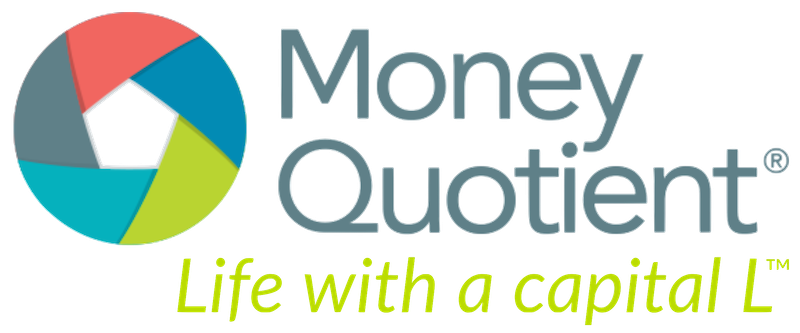 At the end of a thorough financial planning engagement, an advisor hands their client a beautiful spiral-bound packet of information and says, “Here is what you need to do to accomplish your goals!” Three months later, they are exasperated with a client who hasn’t implemented any of their recommendations.
At the end of a thorough financial planning engagement, an advisor hands their client a beautiful spiral-bound packet of information and says, “Here is what you need to do to accomplish your goals!” Three months later, they are exasperated with a client who hasn’t implemented any of their recommendations.
If this sounds familiar, you’re not alone. The reasons for the disconnect may vary, but the ways that we can mitigate them are universal. Adults are driven to learn through the pursuit of their ‘why.’ If we facilitate a financial planning process centered around the fundamentals of how adults learn best, the ripple effect is profound. Levels of implementation, financial life satisfaction, self-efficacy, and client retention all rise.
Adults are driven to learn through the pursuit of their ‘why.’ If we facilitate a financial planning process centered around the fundamentals of how adults learn best, the ripple effect is profound. Click To TweetFrom the foundational research that started Money Quotient, to the design of our tools, processes and training, the principles of adult learning are at the heart of what we do. We also think packaging client communications in a way that’s accessible and retainable is a cornerstone of what advisors strive to do. As a dedicated educator to your clients, incorporating these principles of adult learning in the way you share information can transform how your clients receive it.
1) We have to feel a need to know
Adults are exceedingly practical. Our willingness to learn and what we choose to learn are deeply connected. Having a baby, buying a home, and retiring are three enormous life transitions that often drive clients to schedule their initial appointment with you. They’ve identified a gap in their knowledge and are seeking ways to address it. Connecting relevancy to your client interactions is vital, and in these specific situations, relatively easy.
In cases where the tie to relevancy is more opaque, tying the short-term necessity of your recommendations to their core values can bridge the gap. If you establish a firm understanding of your client’s core values, you can use them as a foundation for goal setting. This way, if and when the goal needs to shift, the client can easily adapt without feeling that change is a failure or shortfall.
2) We require a self-directed approach to learning
Adults are independent. We want to feel we have some control around what we focus on and how we learn. As an advisor, meeting your client where they are and giving them multiple opportunities to learn is critical for engagement.
When we receive information through a variety of methods, we’re more likely to retain what we’re learning. By getting creative with written material, graphics, videos, and seminars, you give your clients several opportunities to understand deeply. Sometimes, this can be as simple as switching up your meeting space from a conference room table to a walk in the park.
Checking in with your client and giving them a chance to have input can go a long way. For example, opening a meeting with, “What do you want to make sure we talk about today?” is a great way to frame, from the beginning, that you want to co-create this experience with your client.
3) We can’t help but lean on prior experience
Adults are a collection of past experiences, and we bring them to our learning environment. Education geared toward children assumes that teachers are painting on a blank canvas, while successful education geared toward adults knows that each individual has their unique frames and biases through which they view the world.
When describing complex recommendations, try to draw on real-world examples and relatable scenarios that build on your client's experience. The more they see their frame of reference reflected, the more meaningful their understanding will be.
Sometimes, you might need to help a client explore ideas that are outside their frame of reference. Advisors are perfectly positioned to do that by showing respect for prior knowledge, sharing appropriate resources, and providing gentle nudges to increase awareness and broaden their views.
4) We are ready to learn when we need the knowledge
Adults aren't going to learn until they're good and ready. Much like the need-to-know principle, readiness to learn proposes that we absorb information most effectively at the moment we need it and when our time and energy are free enough to focus on it.
Clients who engage financial advisors have at least a seed of this readiness to learn. That doesn't mean, however, that they have the time and energy to learn. As advisors, helping your clients understand the benefits of engaging in the financial planning process can help. If they understand how this investment of their internal resources will get them to where they want to go, they're far more likely to make space for the experience.
5) We are problem-centered learners
Adults want to solve problems and seek practical resources to do so. Typically, this serves us well, but it can backfire when we're in times of change. Dan Heath, author of Switch: How to Change Things When Change is Hard, talks about our tendency to solve problems and the importance of focusing on the bright spots during times of change.
Since life is a series of transitions, your clients are experiencing change constantly. Advisors can serve as the champion of bright spots for their clients, helping them recognize the benefit, value, and purpose of what they're learning. Doing so positions you as a thinking partner for your clients. Our MQ Partners often share how humbling it can be to have clients look to them for guidance through some of life's most turbulent times. When we can frame this role of facilitator and thinking partner into our value proposition, we're much more likely to appeal to the problem-solver mindset.
6) We are intrinsically motivated to learn
Adults find motivation through personal growth and development, and we do better when we clearly define success for ourselves. Without a goal post, we have a hard time knowing how we're progressing. We need to be able to measure progress to keep motivation high.
You can help your clients create their meaningful definition of success through visioning. In this process, they're getting specific about what life will be like when they achieve the aspirations they set for themselves. What will it look like, feel like, taste like, smell like? Helping them paint a visceral picture of where they are heading sparks enthusiasm for the vision.
“We will learn, no matter what! Learning is as natural as rest or play. With or without books, inspiring trainers or classrooms, we will manage to learn. Educators can, however, make the difference in what people learn and how well they learn it. If we know what we are learning and if the reason fits our needs as we perceive them, we will learn quickly and deeply.”
- Malcolm Knowles
When implemented well, the principles of adult learning can foster intrinsic motivation, their commitment to following through with the steps to get there, and their connection to you as the facilitator of this deeply personal process.
- Brenna Baucum, CFP® | Director of Education & Communications at Money Quotient
